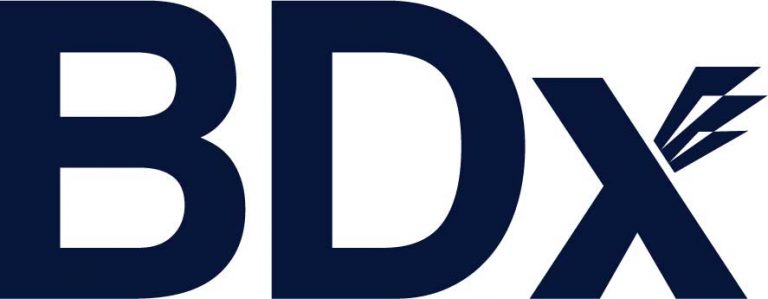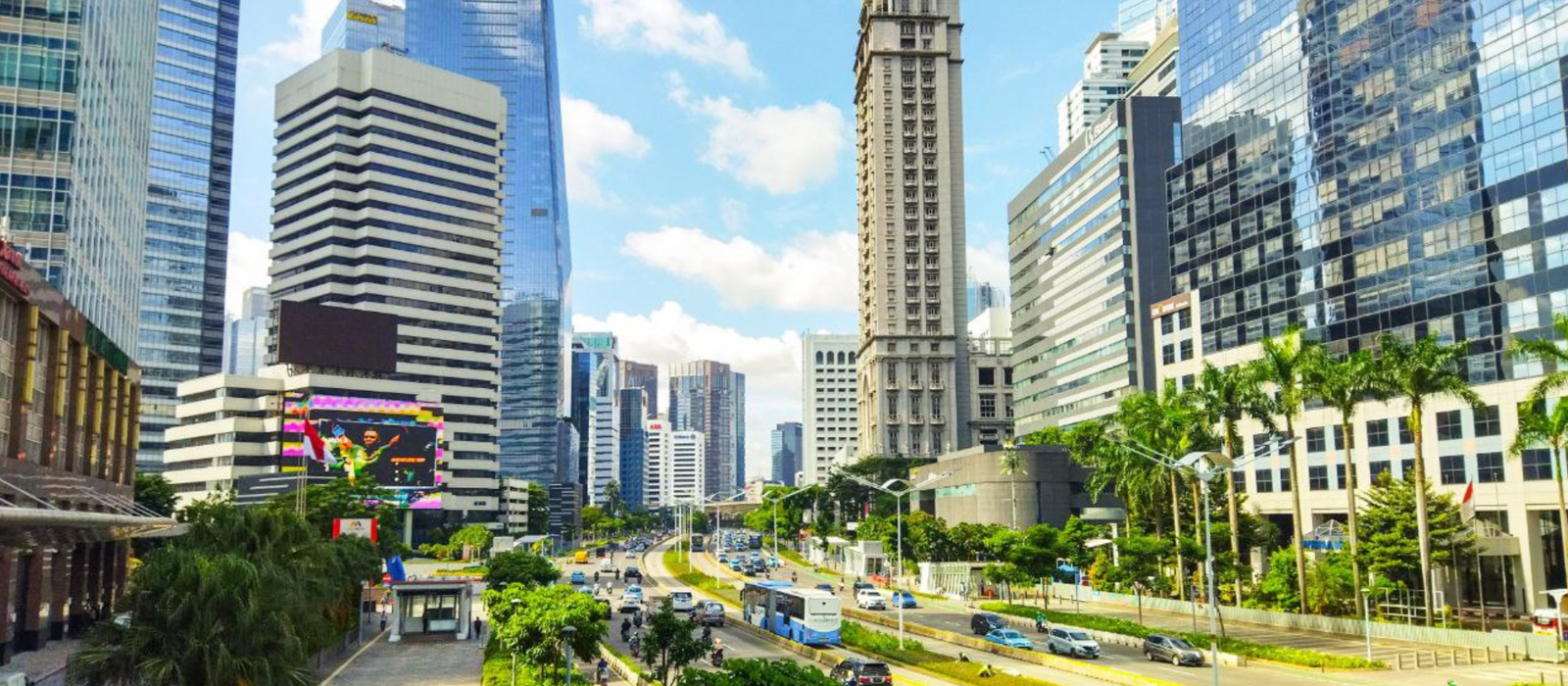In Indonesia, conditions couldn’t be more ideal for a digital boom. Skyrocketing Internet adoption, government-backed digital growth initiatives, major investments, and tech startups setting up shop all point to Indonesia’s transformation into a world-leading digital hub. Does this emerging market have what it takes to rise to the top and compete in an ever-evolving digital landscape?


It’s an exciting time for Indonesia as the country sets its sights on becoming the next digital powerhouse. Several initiatives are propelling the country’s progress forward, such as the government’s comprehensive digital roadmap, a multi-year plan for accelerating digital transformation across its government, economy, and society. Another key initiative taking the country by storm is Making Indonesia 4.0, the Ministry of Industry’s strategy to enter the fourth generation of the industry revolution through the adoption of groundbreaking technologies, such as Internet of Things, artificial intelligence, and 3D printing.
With so much intensity around Indonesia’s trajectory taking center stage, let’s take a closer look at the opportunities and challenges Indonesia is facing on its digital transformation journey.
Record-breaking Internet and Cloud Adoption
There is no doubt Internet adoption is exploding across Indonesia, and the need for reliable, robust connectivity is at an all-time high. This year, nearly 205 million people out of the country’s total population of more than 270 million were active Internet users, and that number is expected to grow quickly as digital transformation expands across a wide range of markets, including financial services, retail, manufacturing, healthcare, and gaming.
Beyond an enormous number of Internet users streaming content and making purchases online, Indonesia is home to thousands of startup companies, many of which are cloud native, requiring more connectivity and robust cloud-based solutions. It is important to note that while cloud adoption is rising quickly, Indonesia is lagging behind other countries. In fact, the United Nations’ 2020 E-Government Development Index placed Indonesia in the early stages of cloud adoption, ranking it 88th out of 193 countries. Additionally, the Center for Strategic and International Studies (CSIS) found only 30% of public institutions surveyed are currently using cloud computing technology. In other words, there is tremendous opportunity for even more cloud adoption growth to take hold across Indonesia.
As the population of tech-savvy Internet users increases and the number of bandwidth-guzzling startups continues to rise at a rapid clip, establishing strong digital infrastructure to support cloud adoption will be the key to Indonesia securing its spot as a leading digital hub.
Indonesia’s Booming Tech Market
Indonesia is quickly becoming one of Asia-Pacific’s fastest-growing public cloud marketplaces, attracting investments from all over the globe, including some of the world’s leading tech companies. A massive increase in startups and digital unicorns is also contributing to Indonesia’s accelerated growth – and the potential for even more growth is astronomical. There are approximately 6,700 startups in Indonesia, eight of which are considered unicorns (startups with a valuation of more than USD 1 billion). But when you consider the huge population of Indonesia and the expansive pool of talent here, the potential for business growth is immense.
What’s more, opportunities abound, specifically in the technology industry. Many large tech companies continue to invest in Indonesia and are embracing cloud technologies to support digital expansion. In fact, Indonesia’s digital economy is anticipated to exceed USD 124 billion by the end of 2025.
Government-backed Digital Roadmap
Beyond organic digital growth across Indonesia, the country’s government has made digital transformation a top priority. Following the pandemic, the Indonesian government announced the digital roadmap for 2021-2024 to accelerate the country’s digital transformation journey. The comprehensive plan focuses on developing an expansive digital infrastructure to extend and improve Internet connectivity throughout the country. One major piece of the plan includes developing a 5G network, which has been well received across Indonesian Internet users. Interestingly, an Ericsson study found more than half of surveyed consumers intend to sign up for a 5G subscription in 2023, with the intent to access cutting-edge apps and services, including extended reality (XR) and the metaverse.
In addition to 5G, Indonesia’s government is establishing a national data center and a telecommunication monitoring center to gauge the quality of its services. The digital roadmap also includes a plan for establishing a digitized government and a digital economy to drive an even larger number of startups. Moreover, the plan provides a framework for developing a tech-focused workforce, offering various levels of training in a wide variety of digital skills, including cloud computing, big data analytics, and cybersecurity.
Roadblocks on the Road to Digital
While it may seem that all the pieces have fallen into place for a digital boom in Indonesia, there are a few challenges to overcome. One major challenge is a matter of geography. Indonesia’s population of more than 270 million is spread across 6,000 habitable islands, which can make enabling connectivity across the country more difficult. Additionally, getting buy-in from Indonesia’s working population could pose some challenges as some workers may feel their current jobs or livelihood may be threatened by advancements in technology.
Another critical roadblock to keep in mind is that swift digital growth can bring substantial security concerns along with it. As more people and businesses adopt digital technologies, the opportunities for cyberattacks grow, and IT teams will need to ensure they have tools and training in place to defend their networks against potential threats.
Best-in-Class Data Centers Ready to Deliver
Up until recently, most cloud companies served Indonesian customers from facilities in neighboring countries. Today, hyperscalers are taking notice of the prime market in Indonesia, with several major global providers including Alibaba Cloud, Google Cloud, and Amazon Web launching data centers in highly sought-after markets like Jakarta, Bali, and Java. In addition to hyperscalers, telecom operators and retail colocation providers are also boosting Indonesia’s data center market. Many new players entering the mix are implementing expansion plans to build new or modernize existing facilities to become state-of-the-art data centers, outfitting them with best-in-class technologies for optimized efficiency and sustainability. For instance, data center companies are launching development across Indonesia exponentially. A recent joint venture assumed the operations of four existing data centers in and around Jakarta.
With so much growth across the area, it is no wonder Indonesia’s data center market is growing quickly. The Indonesian data center market is projected to reach nearly USD 3.5 billion by 2027, up from USD 1.7 billion in 2022.
Indonesia: A Highly Sought-after Location
So, will Indonesia be the next global digital hub? Only time will tell for sure, but as long as this vibrant country continues to display rapid digital growth and cloud adoption, all indicators point to yes. From a growing tech-savvy population to investments from top tech companies to strong government support, Indonesia is well on its way to securing its spot as one of the top digital hubs across Asia-Pacific, if not the world.
About Big Data Exchange (BDx)
BDx is a leading data center, colocation, and hybrid cloud solutions provider in Asia-Pacific and a portfolio company of I Squared Capital. Led by a globally recognized team, BDx empowers enterprises to scale across the world’s most influential markets. With ultra-modern facilities spanning China, Hong Kong, Indonesia, and Singapore, BDx goes beyond space and power to deliver next-gen solutions. BDx’s commitment to boosting sustainability has resulted in partnering with renewable power suppliers and forging coalitions to develop groundbreaking technologies and digitally transform its facilities. The company is vigorously expanding its presence into emerging regions to meet the growing digital requirements of hyperscalers, multinational, and financial services enterprises.
To learn more about this forward-thinking organization, visit bdxworld.com or follow BDx on LinkedIn, Twitter, or YouTube.






























